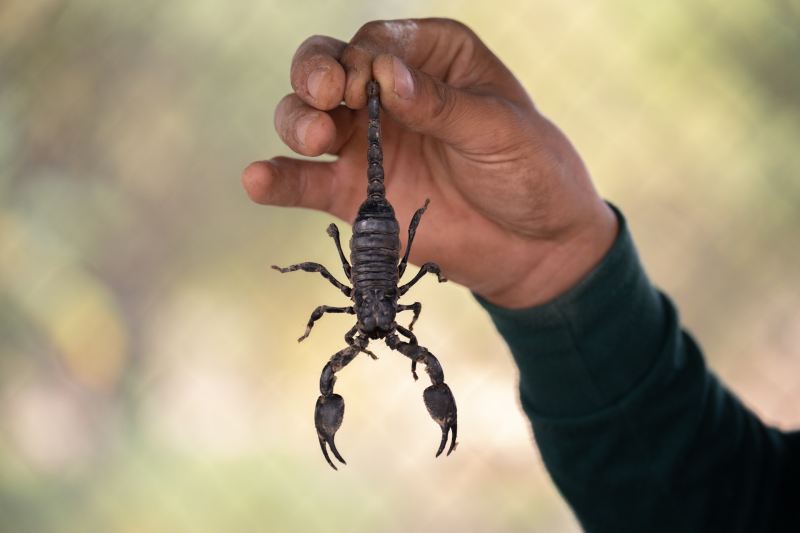
It’s something no hiker, camper, or backpacker ever wants to have to deal with: a bite or sting from a creepy crawly. Whether you’re talking about ticks, spiders, snakes, scorpions, or some other outside dweller, knowing what to do is essential.
Like spiders, scorpions are arachnids that belong to the class Arachnida and the order Scorpiones. They are known for their unique appearance, with a segmented body, a pair of pincers called pedipalps, and a long, curved tail that ends with a venomous stinger.
Despite their fearsome appearance, scorpions only sting if they are provoked or surprised. They love dark hiding spots and can survive in many kinds of harsh conditions.
It’s important to note that while scorpions are intriguing creatures, some species can pose a threat to humans. Here’s what you should do if you are ever stung by one.
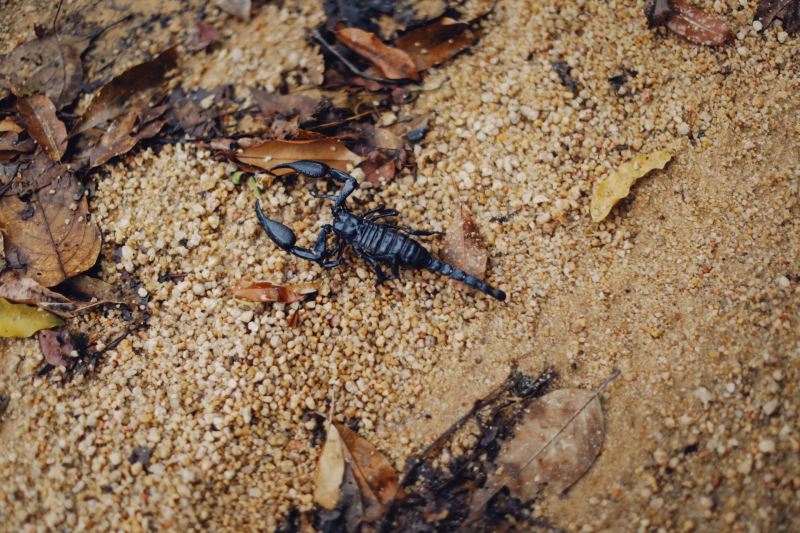
Advice from Mayo Clinic
According to Mayo Clinic, scorpion stings can be painful and potentially dangerous, but most cases can be managed at home with proper care and monitoring. That said, if the victim in question is a child or an adult with severe symptoms, head straight to the hospital for a dose of antivenom. In the meantime, follow these steps to speed up your recovery.
Clean the wound with mild soap and water
Scorpion venom can be present on the surface of the skin, so cleaning the sting with a soft cloth and mild soap and water will help reduce the risk of further absorption into the body. Cleaning your sting also helps to wash away any dirt or bacteria around the wound, which reduces the chance of infection around the puncture point.
Apply a cool compress to the affected area
A scorpion bite can be painful, but a cool compress can help alleviate the discomfort. The cold temperature helps numb the area and reduce swelling. Just make sure that you don’t use a cold compress for more than 15 minutes at a time. You can use a sealable plastic bag with ice cubes and water or a bag of frozen vegetables, but make sure that you protect your skin by wrapping the ice in a thin cloth or towel so you don’t get ice burns.
Don’t consume food or liquids if you are having difficulty swallowing
One symptom of a severe scorpion sting is swelling. If you are stung on your arms or legs, the swelling will most likely stay in those areas. But if you are experiencing severe swelling, especially around your neck area, don’t consume food or liquids so you don’t choke. If you are experiencing this, go to the Emergency Room for some antivenom.
Take an over-the-counter pain reliever as needed
Over-the-counter pain relievers are perfectly safe to use in the case of scorpion stings. Try using ibuprofen, Motrin IB, or Children’s Motrin to relieve discomfort.
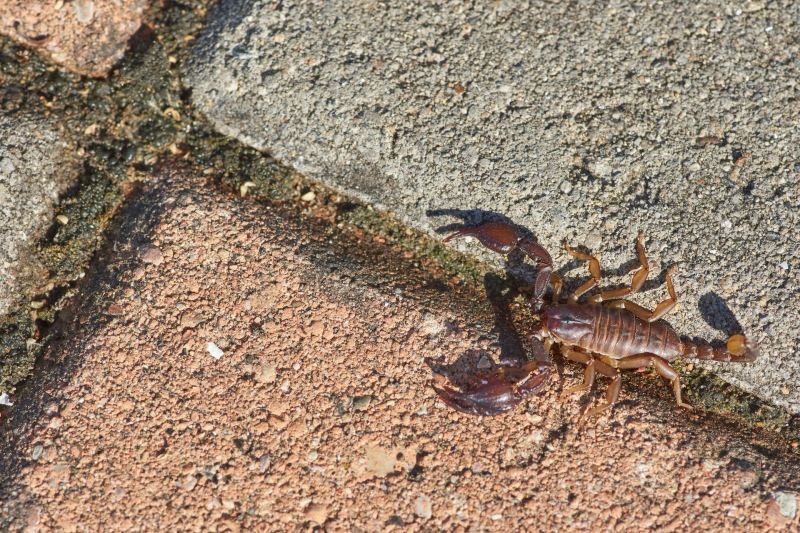
How to avoid scorpions
We don’t blame you if you want to avoid these little guys altogether. Scorpions are pretty resourceful, so if these tips don’t help, consider hiring professional pest control. If you live in an area where scorpions are prevalent, here’s what you should do to prevent any uninvited houseguests:
Seal all entry points
Scorpions can enter buildings or tents through small cracks or gaps in doors, windows, walls, and screens. If you’re concerned about scorpions getting into your dwelling, seal off these areas with weatherstripping, caulking, or other appropriate materials. Scorpions also have a hard time crossing crushed rock or gravel, so consider using it for your pathways.
Clean regularly
Like most varieties of snakes, scorpions like hiding places, so keep your property tidy, both indoors and outdoors. Be aware of any firewood stacks, rocks, or piles of debris, and trim your grass, shrubs, and hedges. Sweeping or vacuuming regularly inside your house will remove any incentives for scorpions to move in.
Shake out items
If you’re camping or you have a pair of shoes that you like to keep outside, be sure to shake them out before you put them on. Clothing, outdoor furniture, baskets, and blankets are all attractive hiding spots for scorpions.
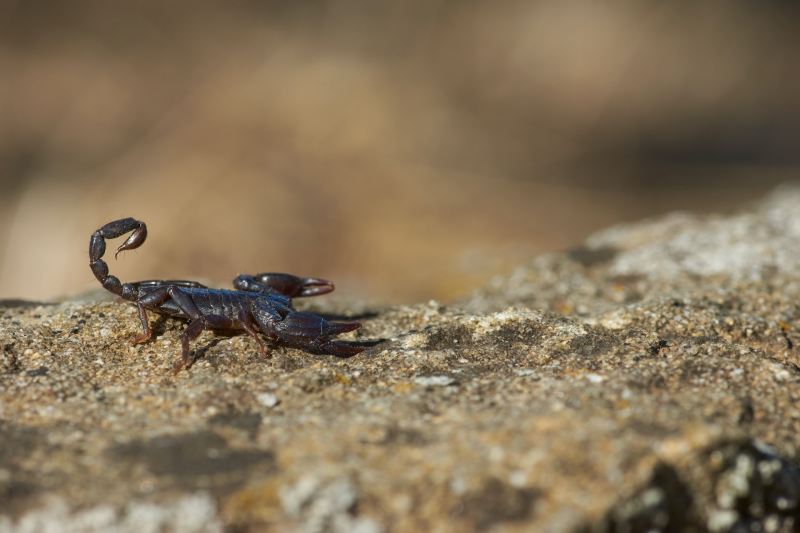
FAQs
Can scorpions kill you?
Most scorpion stings are not fatal, especially if promptly treated. However, certain species, like the Arizona bark scorpion, can be potentially dangerous, especially to young children or individuals with weakened immune systems. If you’re stung by a scorpion and experience severe symptoms, it’s important to seek immediate medical attention.
Can a scorpion sting cause nerve damage?
In some cases, scorpion stings can cause nerve damage. Symptoms such as numbness, tingling, or muscle twitching may occur and can last for several hours or days. If you experience persistent or worsening neurological symptoms after a scorpion sting, seek medical evaluation.
How long does the numbness from a scorpion sting last?
The duration of numbness following a scorpion sting can vary. In most cases, it resolves within a few hours to a couple of days. However, if the numbness persists or worsens, it’s important to consult a healthcare professional.
Should you go to the hospital for a scorpion sting?
Go to the hospital if you begin to experience severe pain or swelling, difficulty breathing or swallowing, persistent numbness or tingling, muscle twitching or seizures, or signs of an allergic reaction. If you’re unsure about the severity of the sting or if you’re experiencing any concerning symptoms, it’s best to err on the side of caution and seek medical care.
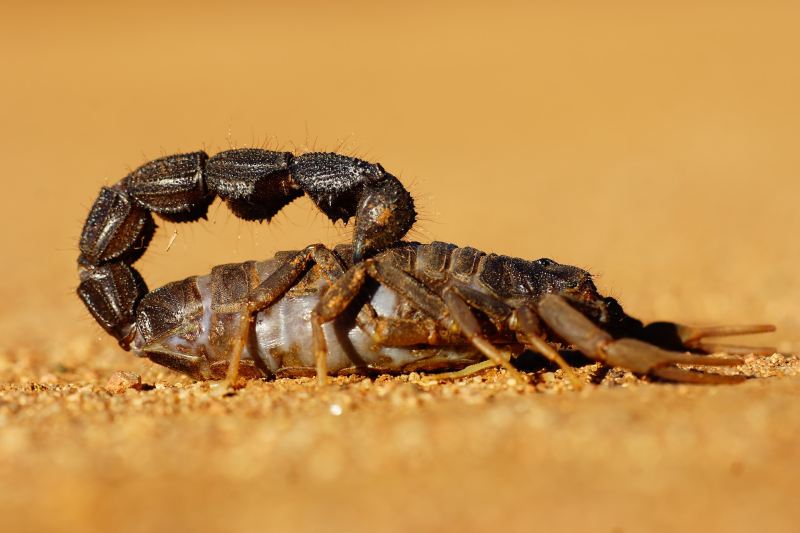
Conclusion
Scorpion stings can be treated at home with proper care. Clean the wound, apply a cold compress, take over-the-counter pain relievers, and seek medical attention for severe symptoms. To avoid scorpion encounters, seal entry points, keep living spaces clean, and shake out items. While most scorpions aren’t life-threatening, certain species can pose risks, especially to vulnerable individuals. Prompt action and preventive measures can reduce the risks. Consult healthcare professionals for specific advice.
Editors' Recommendations
- This easy trick tells you which merino wool base layer is right for your activity
- How snowboard boots should fit when you buy them
- Discover the best Texas state parks: A guide to natural beauty you can enjoy year-round
- New Garmin tactix 7 AMOLED Edition may be the perfect smartwatch for deep-country camping and hiking
- Why you need to be just as wary of moose as bear attacks (and what to do when you encounter one)




